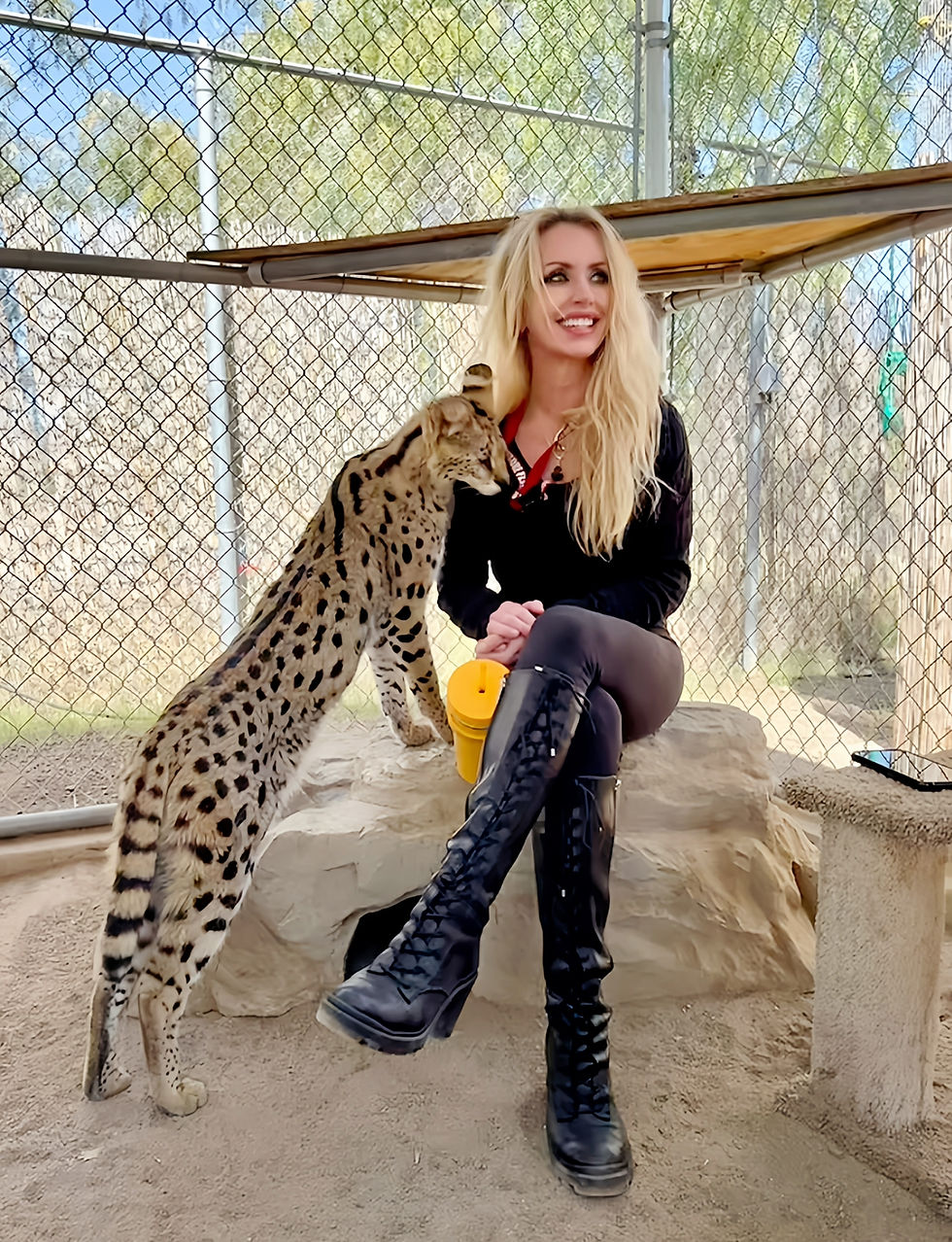Serval Cat Care 101 - Understanding the Wild Heart Behind the Spots
- angeliquedeville
- Oct 14
- 2 min read

Caring for a serval cat is unlike any other experience. These striking African wildcats capture hearts with their long legs, golden coats, and oversized ears, but behind their beauty lies a deeply instinctual, high-energy animal that requires more than love alone. Responsible serval ownership means understanding their wild nature, meeting their environmental and dietary needs, and creating a life that allows their instincts to flourish safely.
1. Understanding the Serval’s Nature
Servals aren’t domestic cats — they’re wild hunters, even when hand-raised. In the wild, servals hunt rodents, birds, and reptiles across the African savannah. Their incredible jumping ability, acute hearing, and solitary nature shape how they behave in captivity.
Expect a serval to be:
Inquisitive and bold, exploring every corner of their environment.
Extremely active — they need space to run, leap, and play daily.
Independent and sometimes aloof, though many form strong bonds with trusted humans.
Recognizing these instincts isn’t just helpful — it’s the foundation of humane care.
2. Creating the Right Environment
A serval needs far more than a cozy bed. Their enclosure should mimic the variety and stimulation of the wild.
Space: A secure outdoor habitat with vertical climbing options, shaded areas, and water features for enrichment.
Safety: Double-gated entries and dig-proof fencing are must-haves to prevent escapes.
Enrichment: Logs, tall grass, perches, and hidden treats help satisfy their hunting instincts.
If kept indoors part-time, rotate toys often, provide supervised outdoor time, and allow access to safe climbing structures.
3. Nutrition: Feeding the Hunter
A serval’s diet should replicate what nature intended — primarily whole prey or raw meat balanced with essential nutrients.
Base diet: Whole prey (quail, chicks, rodents) or high-quality raw meat mixes (with bones and organ meat) designed for exotic cats.
Supplements: Calcium and taurine are vital to prevent deficiencies.
Avoid: Processed cat food, fish-heavy diets, or treats with grains or fillers.
Fresh water should always be available — many servals love splashing in it as much as drinking it!
4. Health and Veterinary Care
Servals require specialized veterinary care from professionals experienced with exotics.
Vaccinations: Use killed-virus vaccines where possible (modified-live vaccines can be risky).
Parasite prevention: Routine checks for fleas, ticks, and internal parasites.
Medical handling: Most servals do not tolerate restraint well — early desensitization and gentle handling go a long way.
Regular health checks help prevent issues before they start.
5. Legal and Ethical Responsibility
Before bringing a serval home, it’s essential to research local and state regulations. Many areas require permits or prohibit ownership altogether. Ethical serval care also means understanding the bigger picture — supporting conservation, responsible breeding, and rescue efforts for displaced or surrendered animals.
6. A Bond Like No Other
When a serval trusts you, it’s a connection that transcends the ordinary. Their affection might show as head bumps, chirps, or a quiet presence beside you — but it’s always on their terms. Respecting that independence is what builds trust and harmony.
Final Thoughts
Caring for a serval is a lifelong commitment — one that demands patience, respect, and a willingness to meet them where their wild heart still lives. With proper care and understanding, these magnificent cats can thrive in human care and serve as ambassadors for their wild cousins who still roam the savannah.


Comments